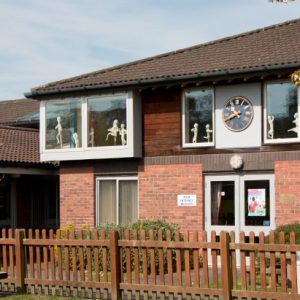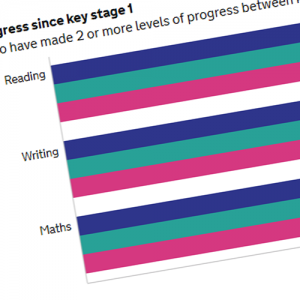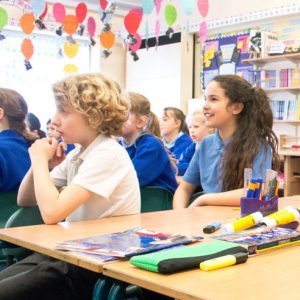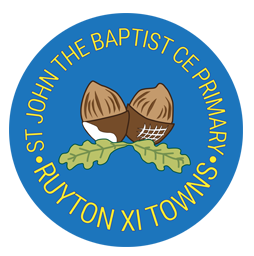
At St John the Baptist and the Bomere and the XI Towns Federation we recognise the importance of English. By the end of Year 6, our aim is to develop a love of reading and writing. We encourage the children to read a range of texts and write for a range of purposes.
Our principle aims – from the National Curriculum in England – for Writing are to:
- Acquire a wide vocabulary, an understanding of grammar and knowledge of linguistic conventions for writing
- Appreciate our rich and varied literary heritage
- Write clearly, accurately and coherently, adapting their language and style in and for a range of contexts, purposes and audiences
- Use discussion in order to learn; they should be able to elaborate and explain clearly their understanding and ideas
The core of our writing curriculum is the National Curriculum for England, which is supported by Pathways to Write, Pathways to Read, Pathways to Spell and Rising Stars Rocket Phonics.
At St John the Baptist CE School, we aim for all our children to become fluent, confident readers who love reading. Reading for pleasure can benefit a child’s education, social and cognitive development, their wellbeing and their mental health. Reading gives children the tools to become independent life-long learners.
Whole school shared reading:
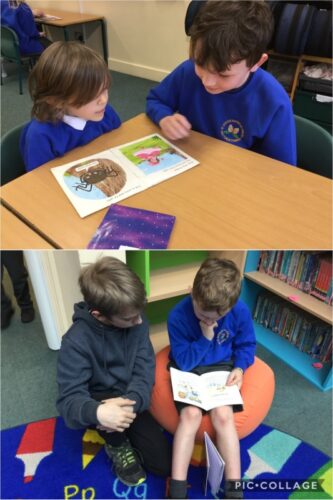
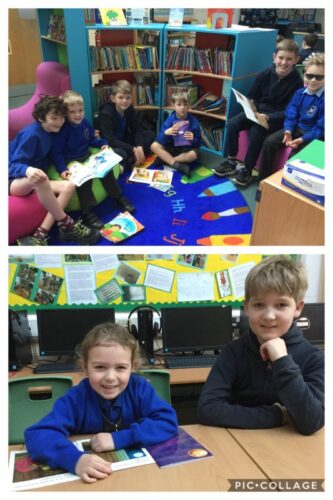
World Book Day Story Time with Mrs Ball (the pirate!) in our Fiction Library:
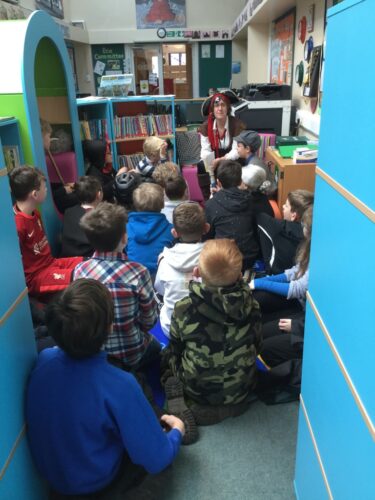
Owl pupils with their new class library for 2021/22 (donated by Friends):
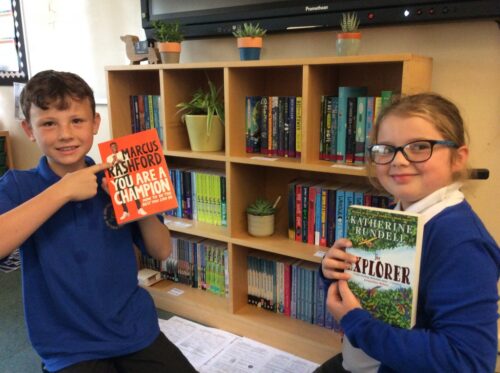
Reading the Game with Shrewsbury Town Football Club:
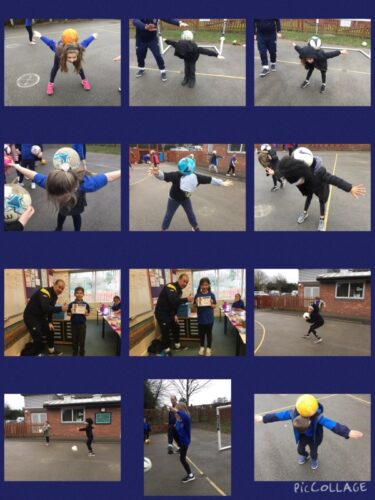
Systematic Synthetic Phonics is a way of teaching children to read, write and spell. The sounds that children learn are taught in a specific, systematic order (not alphabetically) so that children can begin to build words from these sounds as quickly as possible. Phonics supports children to hear, identify and link the sounds that letters make (phonemes) to what the letters look like when written down (graphemes). This helps children to recognise and read words, using knowledge of the sounds to read new or unfamiliar words.
To find out more information, please follow the link to our dedicated phonics page.
https://www.ruytonschool.org.uk/home/learning/subjects/reading/phonics/
Pathways to Write is a proven methodology built around units of work which develop vocabulary, reading and writing skills through the mastery approach. The units, are used with pupils from EYFS to Y6, they are linked to high-quality texts to ensure engaging and purposeful English lessons. Effective teaching strategies to challenge greater depth writers are included within each unit of work.
Pathways to Read equips pupils from Year 2 onwards with key skills to move them through the reading process towards becoming competent and fluent readers.
Pathways to Spell is an innovative and engaging programme to captivate pupils about words. It is a research-based series of lessons following a Review, Explain, Practise, Apply and Reflect model. Through this programme, we aim to develop a school of spellers who use a series of strategies in lessons and in their independent writing.
These programmes complement one another.
The curriculum has been specifically sequenced in a logical progression to ensure that new knowledge and skills build on what has been taught before: Early Years to Year 6. This enables our pupils to know more and remember more.
The EYFS curriculum includes rich opportunities (through child-initiated learning and adult-led learning) for pupils to develop their reading and writing skills. Their writing involves transcription (spelling and handwriting) and composition of sounds that they have previously been taught – articulating ideas and structuring them in speech, before writing. Reception, Year 1 and Year 2 are taught spelling patterns as part of their daily phonics lesson. Spoken language and development of a broad vocabulary begin the minute the children join us in Reception with a strong focus on communication and language. Our inclusive approach means that all children learn together however we use a range of interventions to support children who are having language difficulties this includes TalkBoost and NELI.
From Year 3, spelling lessons take place during the week using the Pathways to Spell scheme to develop accurate spelling. Pupils are introduced to spelling rules, structures and patterns in small steps in line with the National Curriculum. Knowledge of language including linguistic knowledge i.e vocabulary and grammar as well as knowledge of the world for comprehension underpins our teaching pedagogy which is supported by our chosen scheme of work. Grammatical skills are integrated as part of the Pathways programme. We place a focus on ensuring transcription (spelling and handwriting) skills are secure to support children’s capacity to plan, compose and review effectively as they become confident and competent writers. Pathways scheme also uses a range of strategies to assess children’s spellings including collaborative spelling tests, where by children work together to spell the learnt words. Alongside this, teachers will also ensure children are spelling the national curriculum age – appropriate words, which co-ordinates with the pathways scheme.
A teacher-led handwriting session is taught at least once a week throughout the school. Pupils develop a confident, legible and personal handwriting style to meet curriculum expectations. We have adopted the handwriting scheme from the Rocket Phonics, which we continue to follow as the children move through the school.
Formative assessment takes place daily, while summative assessment takes place every half term in the form of ‘Writeaway’ writing assessments which identify were pupils can apply skills independently. Termly, teachers use the Literacy shed resources to compliment pathways and give children more writing opportunities.
Those pupils who require additional support are provided with opportunities to catch up through the spelling, handwriting and composition booster sessions.
Our pupils know that writing is a vital life skill that they will rely on in many areas of their daily life. They have a positive view of writing which is evident throughout the high standards of work which pupils clearly take pride with. We place a high emphasis on writing across the curriculum, developing a breadth of vocabulary, comprehension and embedding learning, allowing pupils to develop domain specific vocabulary in greater depth.
The impact of our curriculum is that pupils are:
- Prepared for the next stage of education.
- Can write effectively for a range of audiences
- Able to apply spelling patterns
- Write legibly for a range of purposes
- Able to identify and use grammatical structures along with effective vocabulary

